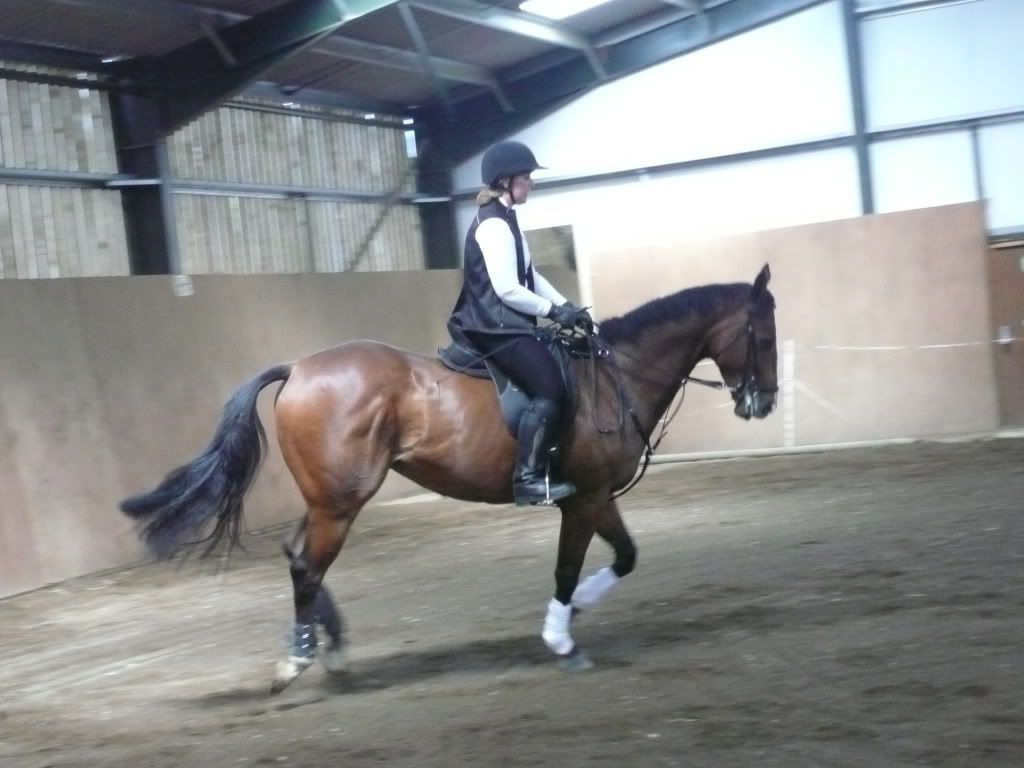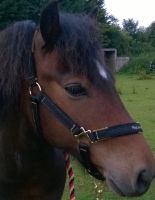Post by haffyfan on Jun 21, 2008 18:05:38 GMT
Horse theft has been an on going problem for centuries. In the UK last year the percentage of thefts rose by 20% compared to the previous year.
It is very much in the news at the min but it's always been a big problem to be fair, especially within the travelling community where the incidents are rarely reported to the police.
So how do you keep your equine friend safe?
Here are some hints and tips regarding protecting your horse against theft. Please do add anything else you think will help.
When buying a horse ask to see it's passport. All horse's in England, Wales, Ireland and some parts of the USA must have a passport by law. This is similar to a car's paperwork. It contains past owners, markings of the horse and freezemark numbers. A stolen horse is unlikely to have one.
If your horse is not freeze marked then if at all possible get this done straight away. This is a huge deterrent for thieves. The Thames Valley Police force suggest having a freeze mark done on the shoulder as it can be seen regardless whether the horse is wearing tack or not. They also suggest to have your horse micro-chipped.
Notices can be bought for gates and patches for rugs etc alerting people that the horse is freezemarked even if it is not visible.
The micro chip is inserted in the neck by a vet and contains a code along with the owners details. All vets check horses chip's every time they see them, so if a horse is stolen they will know straight away. There is also now horse shoe shaped freeze mark available to alert people to the fact your horse is chipped.
Should the worse happen it is useful to have photos to hand of your equine from all angles and of any distinguishing marks etc(remember the police/general public have no idea what a palomino shetland filly with a blaze and 2 socks looks like)
There is a also lot that can be done on your yard to help protect your four legged friend.
Try and visit your horse at different times of the day so that if any one is watching they can not learn your routine.
If your horse is field kept then ensure you put heavy duty chains and padlocks around the gates (both catch and hinge sides so it cannot be lifted or reverse the top hinge)and that the fencing can not be easily broken. Never turn your horse out in a head collar and make sure none are left near by.
If you keep your horse at a stable, then make sure that the yard is locked at night (never lock stable doors incase of fire) and that CCTV cameras or at least dummy camera's are in the yard. Again do not keep a head collar on all night. A good tip is to make a sign to place on the door saying, THIS HORSE BITES/KICKS. A thief is more likely to leave a horse if they think it will cause problems later on.
If there are many horses on the yard it could be worth getting together and buying a guard dog/security system.
Keep a log of anyone acting suspicious/hanging around with a description of person and vehicle.
Finally have an up to date list of emergancy contacts should the worse happen and make sure everyone who needs one has a copy (YO etc), this should include local police, your numbers, insurance, freezemark companies etc). Some people also choose to have a notice with an emergancy contact number on hung on the field gate or a building incase of something happening (like an escaped horse) while you are absent.
It is very much in the news at the min but it's always been a big problem to be fair, especially within the travelling community where the incidents are rarely reported to the police.
So how do you keep your equine friend safe?
Here are some hints and tips regarding protecting your horse against theft. Please do add anything else you think will help.
When buying a horse ask to see it's passport. All horse's in England, Wales, Ireland and some parts of the USA must have a passport by law. This is similar to a car's paperwork. It contains past owners, markings of the horse and freezemark numbers. A stolen horse is unlikely to have one.
If your horse is not freeze marked then if at all possible get this done straight away. This is a huge deterrent for thieves. The Thames Valley Police force suggest having a freeze mark done on the shoulder as it can be seen regardless whether the horse is wearing tack or not. They also suggest to have your horse micro-chipped.
Notices can be bought for gates and patches for rugs etc alerting people that the horse is freezemarked even if it is not visible.
The micro chip is inserted in the neck by a vet and contains a code along with the owners details. All vets check horses chip's every time they see them, so if a horse is stolen they will know straight away. There is also now horse shoe shaped freeze mark available to alert people to the fact your horse is chipped.
Should the worse happen it is useful to have photos to hand of your equine from all angles and of any distinguishing marks etc(remember the police/general public have no idea what a palomino shetland filly with a blaze and 2 socks looks like)
There is a also lot that can be done on your yard to help protect your four legged friend.
Try and visit your horse at different times of the day so that if any one is watching they can not learn your routine.
If your horse is field kept then ensure you put heavy duty chains and padlocks around the gates (both catch and hinge sides so it cannot be lifted or reverse the top hinge)and that the fencing can not be easily broken. Never turn your horse out in a head collar and make sure none are left near by.
If you keep your horse at a stable, then make sure that the yard is locked at night (never lock stable doors incase of fire) and that CCTV cameras or at least dummy camera's are in the yard. Again do not keep a head collar on all night. A good tip is to make a sign to place on the door saying, THIS HORSE BITES/KICKS. A thief is more likely to leave a horse if they think it will cause problems later on.
If there are many horses on the yard it could be worth getting together and buying a guard dog/security system.
Keep a log of anyone acting suspicious/hanging around with a description of person and vehicle.
Finally have an up to date list of emergancy contacts should the worse happen and make sure everyone who needs one has a copy (YO etc), this should include local police, your numbers, insurance, freezemark companies etc). Some people also choose to have a notice with an emergancy contact number on hung on the field gate or a building incase of something happening (like an escaped horse) while you are absent.




 for so much hard work we thank ye!!
for so much hard work we thank ye!!




